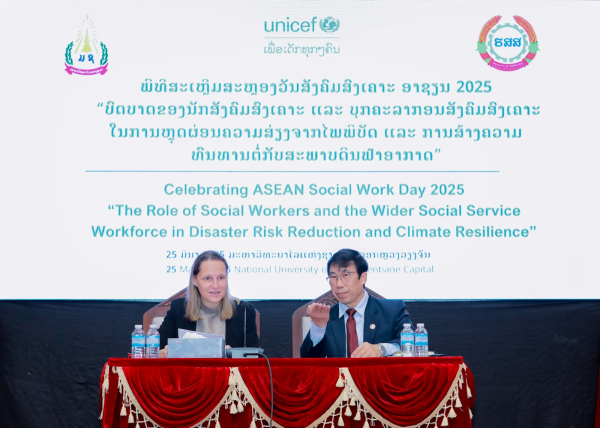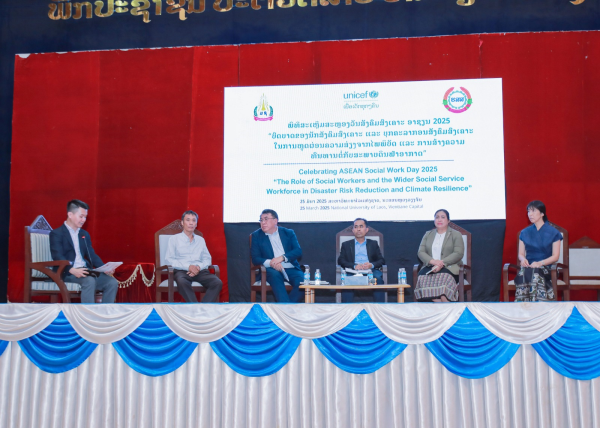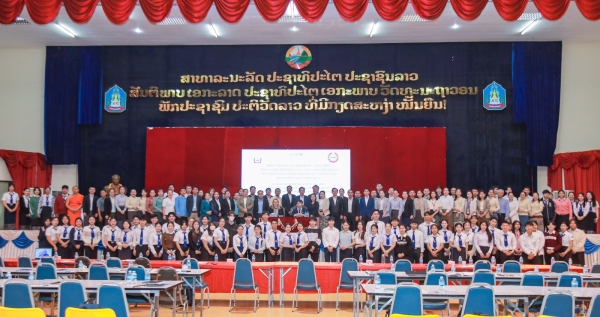KPL
The Lao PDR joined other ASEAN Member States in commemorating ASEAN Social Work Day on March 25, recognizing the pivotal contributions of social workers to disaster risk reduction and climate resilience.

(KPL) The Lao PDR joined other ASEAN Member States in commemorating ASEAN Social Work Day on March 25, recognizing the pivotal contributions of social workers to disaster risk reduction and climate resilience.
Although the official observance falls on March 15, today’s regional gathering—held at the National University of Laos—coincided with collective celebrations across ASEAN and introduced the ASEAN Guidance on the Role of Social Workers and the Wider Social Service Workforce in Disaster Risk Reduction and Climate Resilience.
The event brought together government officials, academics, development partners, and aspiring social workers to highlight the profession’s growing role in humanitarian and climate responses.
“This platform allows us to strengthen collaboration, develop policy, and build capacity so that social work can effectively contribute to disaster risk reduction and climate resilience,” said Acting President of the National University of Laos Dexanourath Seneduangdeth. “We are proud to host this important event and help create a more resilient future for communities across the region.”

The ASEAN Guidance provides a shared framework for Member States to bolster capacity, recognition, and support systems for social and para-social workers in disaster preparedness, response, and recovery.
“At UNICEF, we firmly believe that a strong social service workforce is essential for protecting children and building resilient communities,” said Ms. Magali Romedenne, Deputy Representative of UNICEF Lao PDR. “That is why we have been working closely with the Ministry of Labour and Social Welfare, the National University of Laos and other key partners to ensure social workers receive the recognition, training and support they deserve.”

Recent events—such as Typhoon Yagi in 2024, which caused severe flooding in Luang Namtha Province—underscore why this guidance is critical. Para-social workers identified at-risk children, connected families with emergency services, and provided psychosocial support in temporary shelters, reducing risks and speeding recovery.
“Typhoon Yagi was a stark reminder that climate change is intensifying natural hazards—and that a well-prepared social service workforce is essential in crisis response,” Ms. Romedenne added.
The Lao PDR’s draft Law on Social Work, the country’s first, is expected to be adopted later this year, aiming to professionalize the field and ensure high-quality services. Meanwhile, the National University of Laos has updated its Bachelor of Social Work curriculum to include climate and disaster risk reduction, equipping future graduates to tackle the challenges posed by climate change and social vulnerability.
KPL